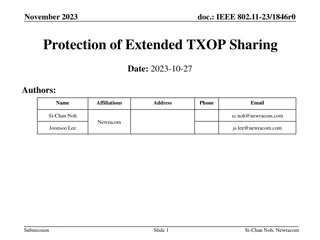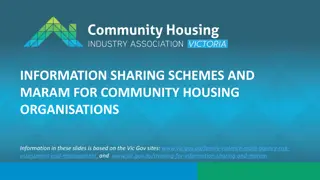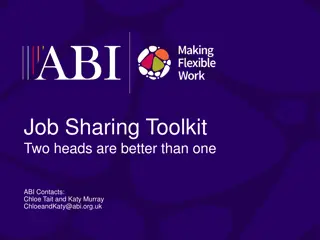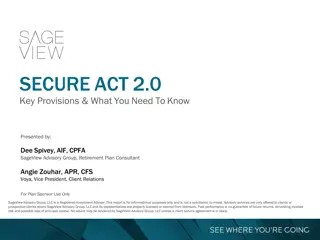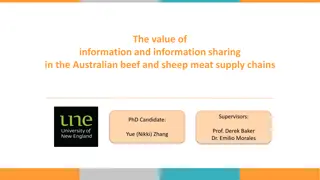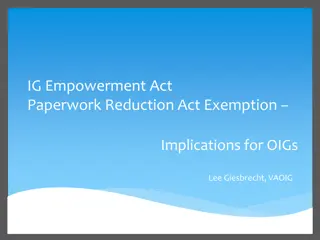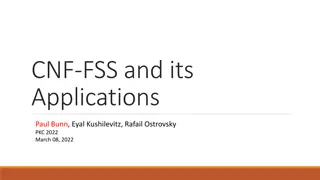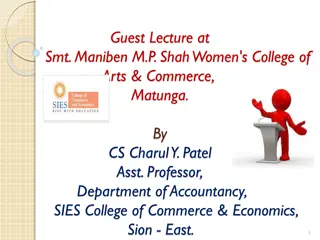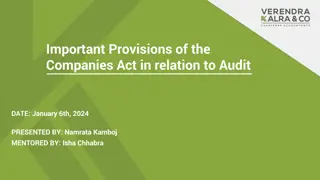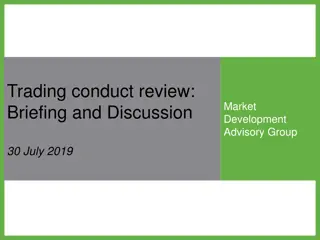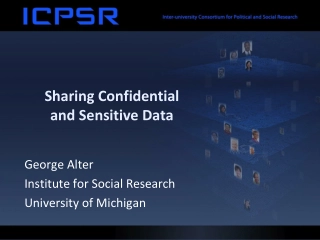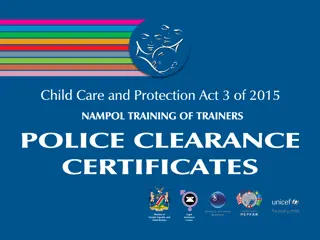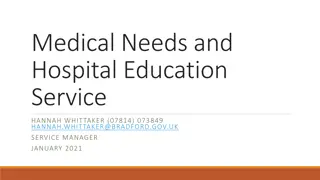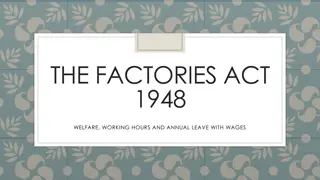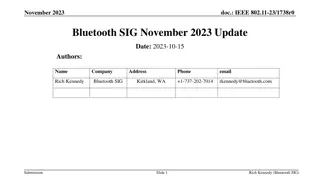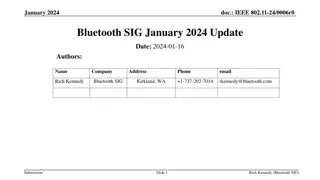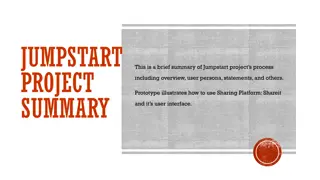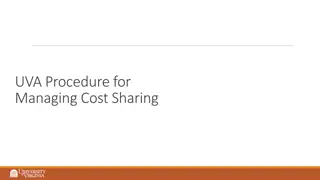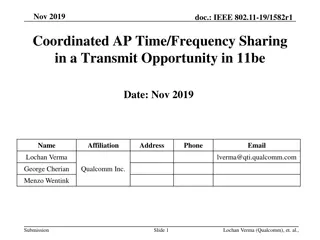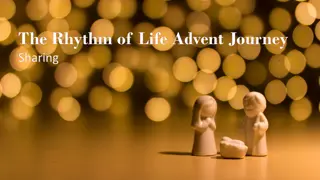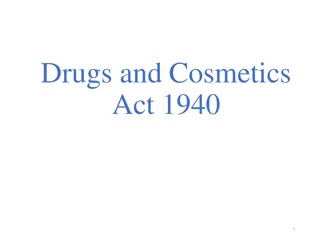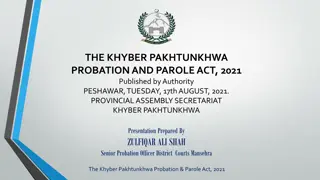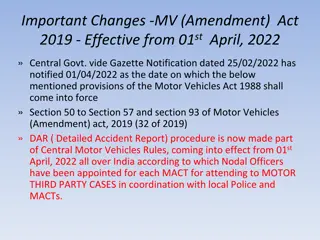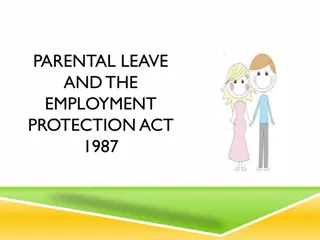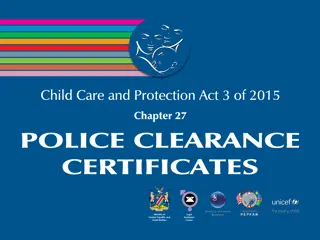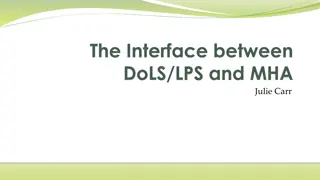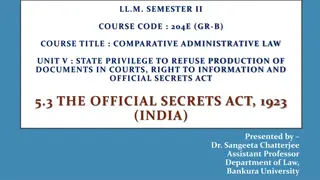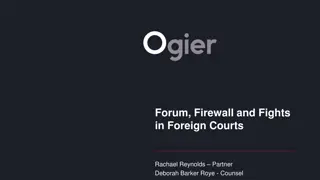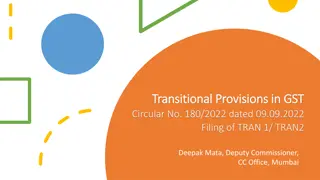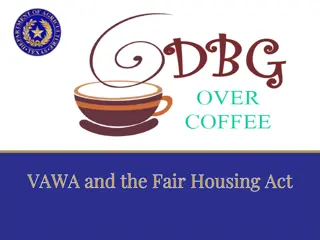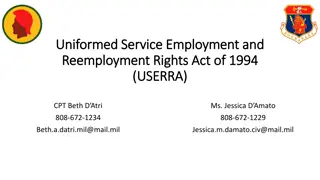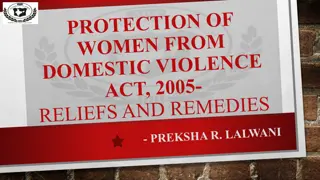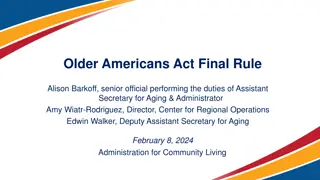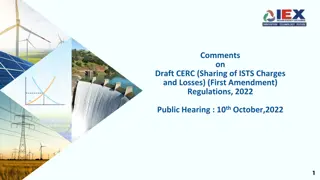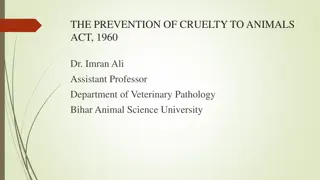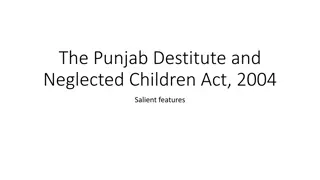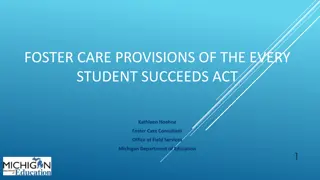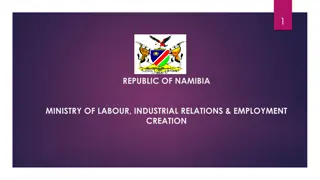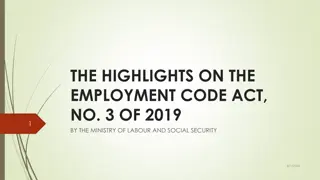Understanding Information Sharing Provisions in the Oranga Tamariki Act
This resource provides valuable information on the information sharing provisions outlined in the Oranga Tamariki Act 1989, focusing on the stakeholders involved, purposes of sharing, types of information shared, and responsibilities towards consulting with children. It aims to support professionals in the child welfare sector in effectively utilizing these provisions to enhance the well-being of tamariki, whānau, hapū, and iwi. Access guidance materials at the provided link to deepen your understanding and facilitate discussions.
Download Presentation

Please find below an Image/Link to download the presentation.
The content on the website is provided AS IS for your information and personal use only. It may not be sold, licensed, or shared on other websites without obtaining consent from the author. Download presentation by click this link. If you encounter any issues during the download, it is possible that the publisher has removed the file from their server.
E N D
Presentation Transcript
Information Sharing A resource to support those in the child welfare and protection sector to use the Oranga Tamariki Act information sharing provisions.
Introduction Sharing the right information, at the right time with the right people can make a huge difference to the outcomes for tamariki and wh nau, hap and iwi. The information sharing provisions of the Oranga Tamariki Act 1989 (the Act) facilitate the request and disclosure of information by agencies and professionals within the child welfare and protection sector to promote the wellbeing of tamariki, wh nau, hap and iwi. 2
Information sharing provisions The information sharing provisions: Define who can request and disclose information Outline the purposes for which you can request or disclose information Outline the type of information that can be shared Outline responsibilities that you have to consult with tamariki about sharing their information. There is useful information guidance and support material available at https://orangatamariki.govt.nz/working-with- children/information-sharing/ 3
Objectives of this resource This resource will help you to understand the information sharing provisions so you know: Who you can share information with Why information can be shared (the purpose of sharing) What information can be shared Who you must consult with about sharing information This resource can be used to support discussions in small groups, reflect on individually or discuss as part of capability development conversations. Throughout the resource there are exercise pages to promote reflection based on the information in the preceding slides. 4
Who can request and disclose information under the Act? The information sharing provisions make it easier to request or disclose information if you are concerned about the safety or wellbeing of tamariki. The Act defines who can request and disclose information as: Police Oranga Tamariki Child welfare and protection agencies* Independent persons* *More information about what these terms mean is available at https://practice.orangatamariki.govt.nz/our-work/information-sharing/ how-to-share-information/supporting-definitions-information-sharing/ 5
A constable (Police) and the Chief Executive of Oranga Tamariki Section 66 OnlyPolice and Oranga Tamariki can use this section to require agencies to comply with a request for information. That means they can ask almost anyone for information relating to the safety and wellbeing of tamariki if it is needed to: determine whether te tamaiti is in need of care or protection help with a family group conference. 6
If you receive a section 66 request If you receive a request from Police or Oranga Tamariki you must comply unless the information is legally privileged. If you get this type of request it is okay to ask questions or discuss any concerns you have about releasing information with the requestor. This could include worries about your professional duty of confidentiality. 7
A child welfare and protection agency or an independent person Under section 66C if you are part of achild welfare and protection agency or an independent person as defined in the Act you can: Proactively and voluntarily share information with the professionals who will be most able to help tamariki and wh nau as long as you follow the requirements of the provisions, you can proactively and voluntarily share information with another professional. Ask for information to be shared with you you can ask others to share relevant information with you as long as it s for the reasons and purposes of the provisions and the professional or agency is covered by the provisions (these are contained in slide 12). Choose how to respond to an information request the information sharing provision section 66C means information can be shared between professionals, not that it must be. Use your professional judgement to decide whether to share information on the basis of whether it will help achieve one or more of the purposes specified in the Act (see later slide). It may help to discuss the situation with someone else in your organisation before making a decision. 8
Exercise 1 Explore the definitions of a child welfare and protection agency and an independent person using the link below, then think about the following questions. 1. Who currently asks you for information? 2. Who could you ask for information that might help with the work you are doing with tamariki and wh nau? 3. Can you request information from Oranga Tamariki or Police if you are working with tamariki and wh nau? 4. If Police or Oranga Tamariki request information under section 66 do you need to comply? https://practice.orangatamariki.govt.nz/our-work/information-sharing/ how-to-share-information/supporting-definitions-information-sharing/ 9
The purpose of sharing information Information is precious and powerful. The provisions encourage the sharing of information between professionals to support tamariki wellbeing and to assist their wh nau as early as possible. Under the Act, information can be shared to promote the wellbeing of tamariki and their wh nau, hap and iwi. Note: This is broader than sharing information only about safety concerns with Oranga Tamariki or Police (when tamariki might need care or protection because of possible harm). Well-being Safety Safety is part of well-being 10
What does wellbeing mean for tamariki and wh nau? Wellbeing (oranga) can include things like: strong positive wh nau relationships spiritual and cultural connections having their developmental needs meet and supported education, behaviour, life skills and selfcare skills emotional resilience and support social and peer groups that are supportive, caring and positive physical and mental wellness security being safe from harm, living in a safe community, having a warm dry home, having enough food. 11
What the Act says about the purpose of sharing information Under section 66C of the Act a child welfare and protection agency can disclose information for any of the following purposes: Prevent or reduce the risk of harm, ill-treatment, abuse, neglect or deprivation for tamariki OR Make or contribute to an assessment of the risks or needs of tamariki OR Make, contribute to or monitor any support plan for tamariki that is managed by Oranga Tamariki OR Prepare, implement or review any prevention plan or strategy made by Oranga Tamariki OR Arrange, provide or review services facilitated by Oranga Tamariki for tamariki or their wh nau OR Carry out any function in relation to a family group conference for tamariki in care or anything else related to the care or protection of tamariki. 12
Can you get in trouble for sharing information? If you are providing information: about the safety or wellbeing of a child or young person; for one of the purposes listed in section 66C of the Oranga Tamariki Act; to a member of the child welfare and protection sector; you are generally protected under the Act from any kind of civil, criminal or disciplinary action if you sharing information in good faith. 13
Exercise 2 Section 4(1)a-j of the Act speaks about the how we can promote the wellbeing of tamariki. Take a moment to think about what promoting wellbeing looks in your organisation. 1. What information do you need from others to help you to promote wellbeing? 2. What might others need from you if they are working with the same tamariki and wh nau? 14
What information can you share? Under section 66C of the Act a child welfare and protection agency or independent person may use any information relating to a child or young person for one or more of the purposes specified. (See slide 12) This means you can share information you have received with another child welfare agency or independent person (whether they make a request or not) if you think if it is in the best interests of tamariki and to promote the wellbeing of tamariki, wh nau, hap and iwi, as long as it is for one of the reasons specified in the Act. They may also disclose that information to another child welfare and protection agency or an independent person for any of those purposes. 15
Privacy Act considerations There are some requirements of the Privacy Act about sharing information that also apply alongside the Oranga Tamariki Act. Any information you share must be: relevant to, or related to, addressing or supporting the safety or wellbeing of tamariki (the information sharing provisions require this) AND as accurate as you can make it and not misleading (the Privacy Act requires this) so be clear what is fact, what is your professional view, what is someone else s point of view and what is a worry or concern that hasn t been confirmed yet AND as complete as you can make it (the Privacy Act requires this) for example including contextual information to help with understanding. However balance this with only sharing the minimum necessary to achieve the purpose of sharing AND as up to date as you can make it (the Privacy Act requires this) this can include historical or past information if it helps to understand the current concerns or worries. 16
Exercise 3 Think about the following questions: 1. Can you disclose ( on-share ) information you have received under section 66C to another child welfare agency or independent person? 2. Can you share information that has not been requested but may be relevant to the work another child welfare agency is doing? 17
Consulting with tamariki before sharing information Your organisation may have policy or guidelines about getting consent, or consulting, with people before disclosing or requesting information and you should follow these. The information sharing provisions in the Act do not discuss consent. However, the provisions do require that you: consult with the tamariki (or their representative) before sharing information where it is practicable and appropriate assist them to understand the nature of the proposed disclosure, express their views and understand the consequences of the decision that is taken in relation to the disclosure take their views into account before making the final professional decision about sharing the information. 18
Consulting with others before sharing information There is no requirement to consult with wh nau or others about sharing information, but it is good practice to keep people informed where it is safe and appropriate to do so. Consulting with people about sharing information about them: enables them to feel part of the decision making process gives them time to think about what is happening and express a view avoids unexpected surprises helps build an open and trusting relationship allows them an opportunity to comment if they think information is incorrect 19
Exercise 4 Think about following: 1. How does consulting with the person the information is about help the work you do? 2. There may be some times when it is not practical or appropriate to consult before you share. What might these look like? 3. Identify one or two things that you might do differently in relation to requesting or sharing information. 4. What does this mean now for your work? What could you start doing, or stop? 20
Where can you get further information or advice? Information sharing | Oranga Tamariki Ministry for Children Guidance for sharing information | Oranga Tamariki Ministry for Children 21


